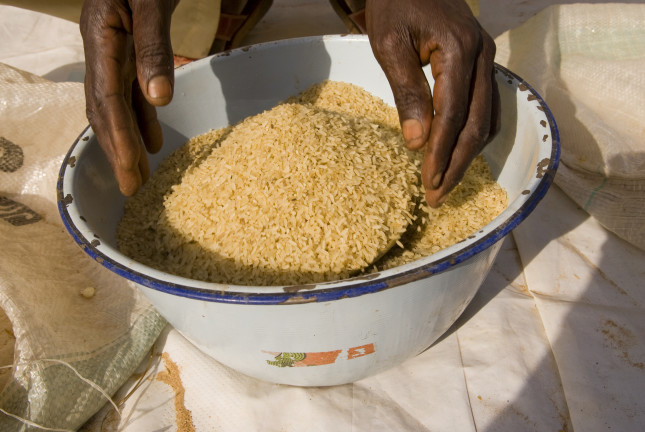-
New Report Pushes for Greater Focus on Resilience in Feed the Future’s Work in Nigeria
March 18, 2019 By Truett Sparkman
“We are suggesting the tilt to resilience [in Nigeria] is not fully evident,” said Julie Howard, Senior Advisor with the Center for Strategic and International Studies’ (CSIS) Global Food Security Project. She spoke at a recent CSIS event launching a new report, Risk and Resilience: Advancing Food and Nutrition Security in Nigeria through Feed the Future. The report critiques the USAID global food security and hunger program, Feed the Future, which is attempting to expand on its work reducing poverty and malnutrition by adding a third priority: building resilience in the second phase of its campaign.
Origins of Phase Two
Feed the Future has met or exceeded important targets for reducing stunting and poverty, said Greg Collins, Deputy Assistant Administrator and Resilience Coordinator with the Bureau for Food Security at USAID, explaining the rational for the new focus in phase two. But, he said, as early as 2011 they began to question the basic premise of where they were focusing Feed the Future by asking, “if we have Feed the Future how can there be an unprecedented famine happening in Somalia?” And why do many of the same places require a major humanitarian outlay every three to five years? So the pivot was to stop thinking about these areas “as a perennial humanitarian risk, and start thinking about them developmentally,” he said.
Pushing USAID to go further, the report recommends five key objectives for Feed the Future: Elevate the priority of resilience to a much higher level, strengthen local capacities and systems to guide Feed the Future programming, capitalize on Feed the Future’s strengths, make management flexible, and harness the United States’ diplomatic leadership.
Perspectives from NGOs and Experts Working in Nigeria
Although Nigeria is the seventh largest democracy in the world and an economic powerhouse in Africa, it faces many challenges, including food insecurity, corruption, terrorism, and climate change, said Ambassador Johnnie Carson in a video aired during the report launch. This combination of challenges has led many Nigerian households to struggle with malnutrition. In some conflict-stricken northeastern states, half of children are stunted.
It has taken many years for Nigerians and the government to recognize the importance of resilience, countering violent extremism, and economic development strategies as ways of avoiding conflict, said Adesoji Adelaja, Professor at Michigan State University and Global Fellow for the Wilson Center’s Africa Program. The Nigerian government, with the proper help, is ready to move forward on nutrition and security issues. Some of the most valuable ways Feed the Future could support the government, he said, would be to provide evidence of what works, support Nigeria’s capacity to develop good policy, and support the development of think tanks in country.
Observers have noted that young Nigerians are interested in building resilience. In surveying young people for Mercy Corps’ Strategic Risk and Resilience Assessment, Dina Esposito, Vice President of Technical Leadership at Mercy Corps, found that young people want access to information, education, employment, and capital for starting businesses. They consider personal mobility and social connections their keys to success, she said. In terms of their ability to bounce back, they’re not sitting around waiting for a handout. “They’re very ready,” she said, “and looking forward to the future.”
Read More:
- Researchers report back on what Feed the Future has accomplished in Bangladesh and what USAID can do better.
- Policymakers discuss the importance of investing in food security around the world.
- Water stress, instability, and violent extremism fuel fragility in Nigeria.
Sources: Center for Strategic & International Studies, USAID
Photo Credit: Rice grains in bowl. Nigeria, May 2008. Photo by Arne Hoel / World Bank.
 A Publication of the Stimson Center.
A Publication of the Stimson Center.



